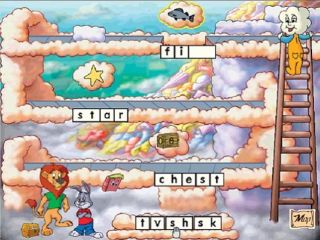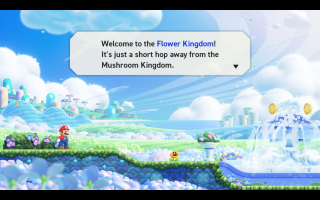Education
Video Games Can Help Kids Learn to Read
Children can naturally develop reading skills while having fun.
Posted March 24, 2024 Reviewed by Abigail Fagan
Key points
- Some video games are designed to teach reading skills.
- Children must read to understand and play many other mainstream games.
- Young people are intrinsically motivated to read and write about their interests.
Learning to read fluently requires hundreds of hours of practice. Some children happily sit and read for hours, but others (especially those with ADHD or dyslexia) cannot. Parents and teachers often wonder how to get those children to practice. Some video games explicitly teach reading skills, but mainstream games are also useful.

Video games are ideal places for these children to practice reading. This is primarily because they’re both interesting and safe. Reading aloud in class can be frightening for young readers. Despite teachers’ best efforts, struggling readers are often judged or mocked by peers when they mispronounce or stumble over words other kids know. Many adults vividly recall counting the number of children ahead of them in line to read to determine which paragraph they would be called on to read. “I would ignore the rest of the lesson to covertly rehearse my paragraph over and over. It was terrifying.”
I worked with many of these children in a therapeutic middle school. After years of humiliation, many children started to act out during English class to save face. They could not read as well as other students and it felt emotionally safer to pretend to be uninterested and write off the class entirely. Arms folded, they sat in the back of the classroom rolling their eyes or glaring at the teacher and stomping out of the classroom when called upon. It was easier to insist they “hate reading” than admit they were afraid of it.
Luckily, I worked alongside fantastic teachers, who recognized the meaning behind this behavior and responded appropriately. They gave the students individual attention away from the rest of the class and provided individualized assignments catered to the students’ interests. For many, this involved video games. “Write three paragraphs about why you like Minecraft.” “Read and annotate this article about Pokémon.” “Write a one-page persuasive essay about why Call of Duty is better than Fortnite.” Unsurprisingly, interesting assignments and private space to make mistakes helped them feel comfortable as they learned critical reading and writing skills.
Many students who say they don’t like reading simply lack motivation. One researcher found that the average tenth-grade student spends over an hour every day happily reading about video games. In another study, 60% of 8- to 18-year-olds reported writing online about video games every month. In short, video games are a proven way to motivate children to practice reading and writing outside of the classroom.
Most video games require players to read. For example, Pokémon games have no voiced dialogue; every in-game character communicates through text. The same is true for Animal Crossing, Fire Emblem, Super Mario Bros., and many others.


Some young people skip on-screen text whenever possible. I have met several who press the “advance text” button as rapidly as possible to return to the action. For those children, I advise that their parents sit with them and help guide them. The child might read the protagonist’s dialogue and the parent can role play the other characters.
Some evidence suggests that reading text on a screen is inferior to reading from a book. One study found that children recalled more details when reading from a book than they do from the same text with interactive elements on a screen. Many teachers fear that screens are too distracting and don’t promote “reading stamina” – the ability to sit with and analyze a challenging text. This seems particularly true for very young children, whose brains are still developing patience and focus.
Therefore, I recommend that children be given as little screen time as possible before age 8-9. Talking to distant family members on Zoom and educational programs like Sesame Street are great in moderation. However, children may not learn from screens as well as they do from a live instructor. Some evidence suggests that children under three years old cannot learn anything from prerecorded videos, even ones explicitly designed to teach them. This means that the best way for you to help your children succeed in school is to spend time with them. Read them books and help them sound out words. Make reading a game. Help them figure out what the stop sign on the corner says. Occasionally make silly mistakes and encourage them to correct you. Have fun.
When they’re old enough and grasp the fundamentals, video games can help young people practice reading while having fun.
References
Compton-Lilly, C. (2007). What can video games teach us about teaching reading? The Reading Teacher, 60(8). https://www.researchgate.net/publication/238445863_What_Can_Video_Games…
Huebeck, E. (2024, January 15). Is too much screen time, too early, hindering reading comprehension? Education Week. https://www.edweek.org/teaching-learning/is-too-much-screen-time-too-ea…
Picton, I .& Clark, C. (2021). Children and young people's video game playing and literacy in 2021. National Literacy Trust. https://literacytrust.org.uk/research-services/research-reports/childre…
Roseberry, S., Hirsh-Pasek, K., & Golinkoff, R.M. (2015). Skype me! Socially contingent interactions help toddlers learn language. Society for Research in Child Development, 85(3). https://www.ncbi.nlm.nih.gov/pmc/articles/PMC3962808/
Schwartz, S. (2023, March 15). Kids understand more from books than screens, but that's not always the case. Education Week. https://www.edweek.org/teaching-learning/kids-understand-more-from-book…
Thompson, C. (2014, October 9). How videogames like Minecraft actually help kids learn to read. Wired. https://www.wired.com/2014/10/video-game-literacy/


